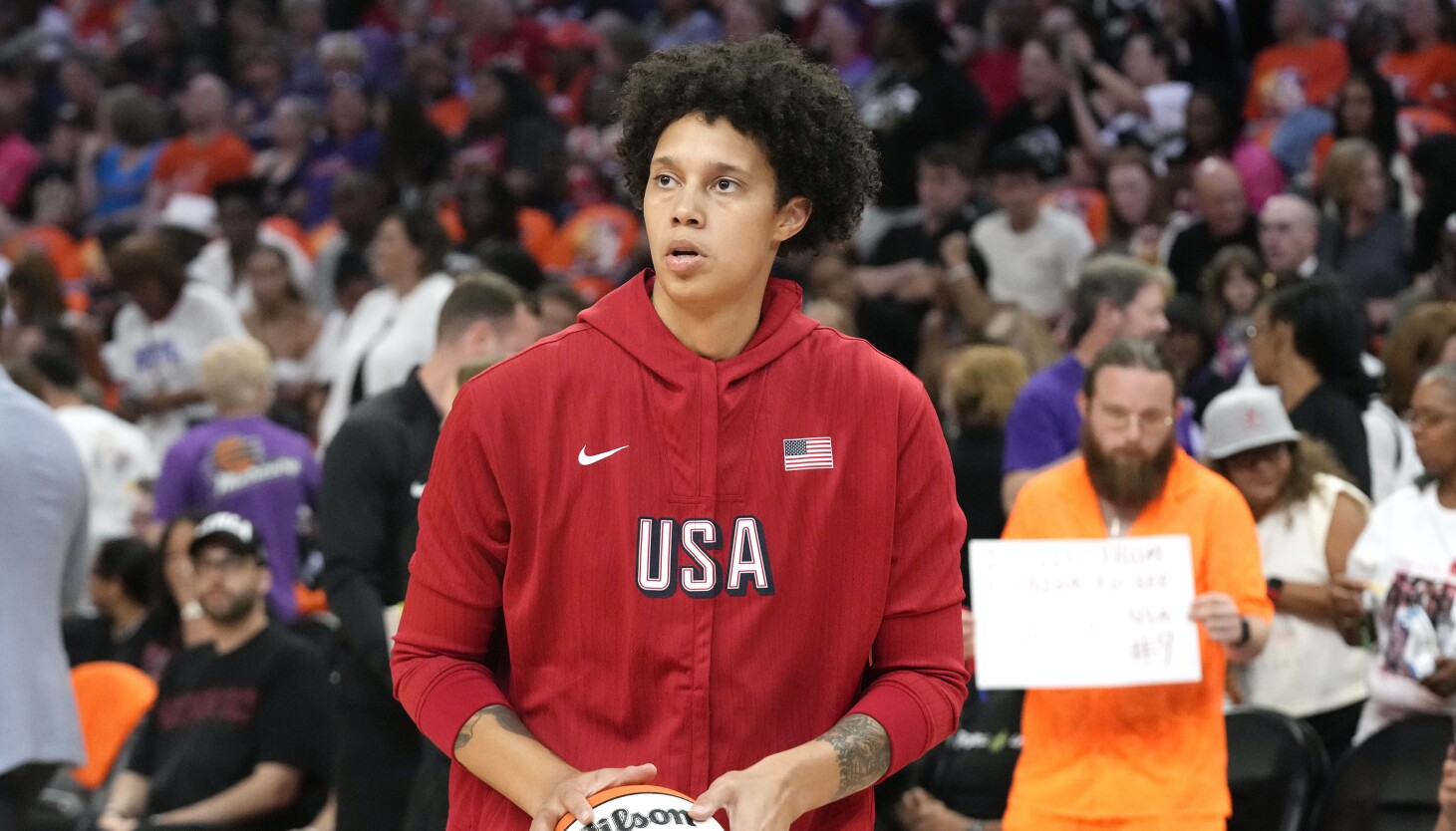All you Stephen King and Edgar Allan Poe horror fans should read the Brittney Griner book “Coming Home” and get your needed goosebump quota. It’s a hair-raiser.
With the Paris Olympics starting Friday, Griner is in France as a member of the U.S. women’s basketball team. Traveling abroad on a plane, going through customs, having her bags X-rayed and checked by foreign agents and drug-sniffing dogs no doubt brought back flashes of her 2022 arrest for “drug smuggling” in Moscow and the 10 months she spent in Russian jails and penal colonies as a result.
Released nearly 20 months ago from what was supposed to be a nine-year sentence, she suffers from post-traumatic stress disorder from the ordeal. Makes sense. She stupidly packed two small cartridges of cannabis oil when she was flying from the U.S. in February 2022 to join her UMMC Ekaterinburg EuroLeague pro team. Even that tiny amount of marijuana residue is a crime in Russia. Even if you have a medical prescription for it, as Griner did.
She had already played eight years for Ekaterinburg and felt Russia was “my second home.” She didn’t understand that Russia is not a home — not for Americans, anyway — and not while former KGB lieutenant colonel and current dictator Vladimir Putin rules the household.
How dumb was it to carry in the vape cartridges?
Let her explain: “In Arizona, cannabis is legal. In Russia, it’s forbidden. I knew that. Honest to God. I just totally forgot the pen was in my bag.”
Then another cartridge fell from her sweatpants when the agents checked
her luggage. Her internal response? “F—. F—. F—.”
The thing is, we all make mistakes. And hopefully we learn from them. But nobody needs to learn the way Griner did. Yet, nobody can be so casual and complacent and even ignorant of the savage dangers awaiting those who make mistakes in a country like Russia.
Griner says she hates packing, that her wife, Cherelle, always does it for her.
“Please don’t ask me to organize anything,” she writes. “Not a closet. Not a pantry. Not a schedule. And for damn sure, not a suitcase.”
Her casualness was almost inevitably going to lead to disaster. She became a political pawn, used by Putin as a chip to lord over the United States. At almost the same time as her arrest, Russia invaded Ukraine. The simmering antipathy between our two countries hit boil overnight. Everything became political, including prisoners and their value to each state.
Griner should have paid attention to the world around her. She went to Russia yearly to play basketball. And to make money. She made $220,000 a year playing in the WNBA; in Russia, she made more than a million.
But like so many pro athletes, she lived in her protected cocoon of luxury, focusing only on her sport. Anyone paying attention should have known about Putin, the Russian legal system, the brutal and unrelenting laws.
More than 200 journalists have been murdered in Russia since 1991. I and many others are damn sure aware of that.
And yet Griner is a sympathetic figure, too. As a 6-9, Black, openly gay female with a deep voice and breasts that she says have never developed, she is a subject of curiosity, ridicule and amazement everywhere she goes. Growing up with ADHD and a loving but stern policeman father made her life very difficult. Normalcy ever receded into the distance.
Still, she was in Russia by choice.
“I couldn’t see the dirty politics, the corruption, the old-school views of women,” she admits in her book. “The club handled all my business and kept a bubble around the players, which kept the real Russia out of view.”
The real Russia is right here, right now, in front of the world. The Ukraine war rages. Putin threatens NATO. And Russian athletes have been banned from the 2024 Olympics over ceaseless doping and cover-ups. Any Russian athletes at the Paris Games must compete under a bizarre non-national Russian Olympic Committee flag that looks like a white beach towel with little flames.
Griner was eventually traded for Russian arms seller and U.S. prisoner Viktor Bout, aka the “Merchant of Death.” As that dangerous man and Griner walked past each other during the heavily guarded exchange in Abu Dhabi, they paused and looked at each other. They shook hands.
Griner noticed Bout’s hands were soft, from painting pictures of kittens in prison, she’d heard, while hers were ragged from working nonstop in the hellish and frozen gulag called IK-2.
“Congratulations,” the Merchant of Death said to Griner. “Good luck on being home.”
